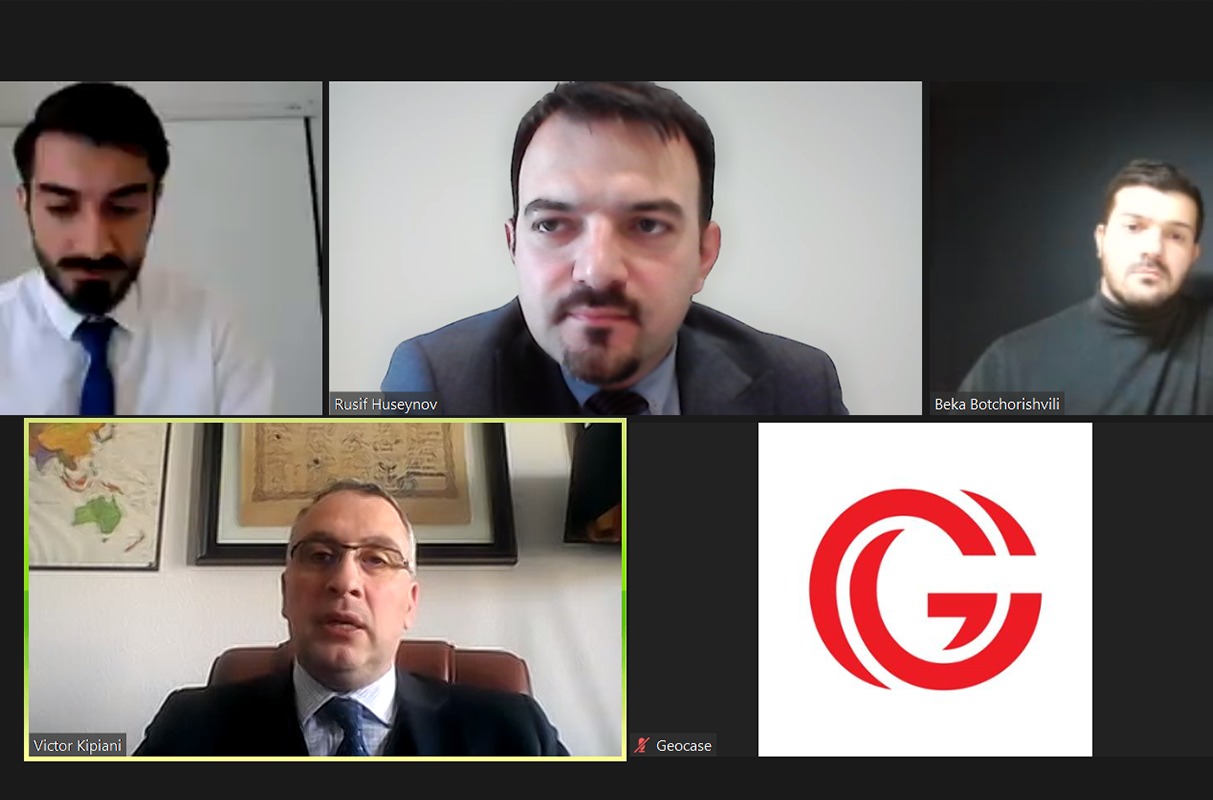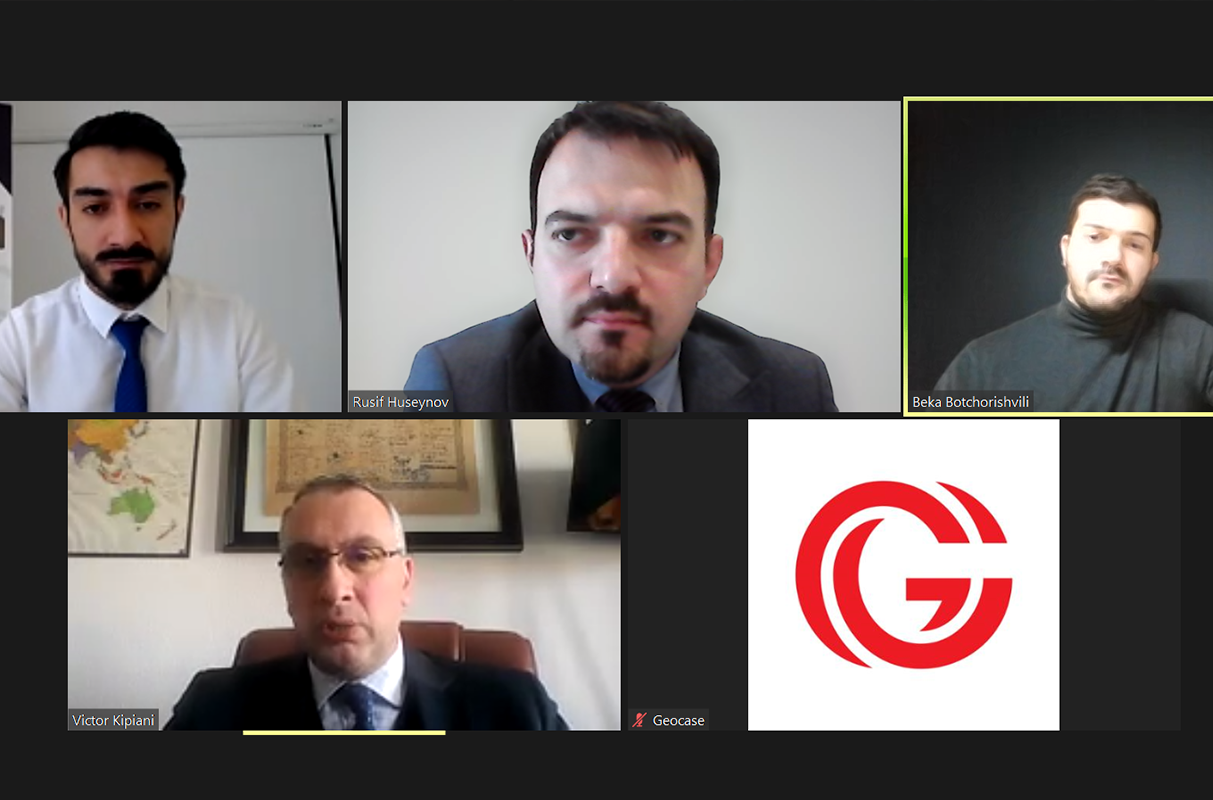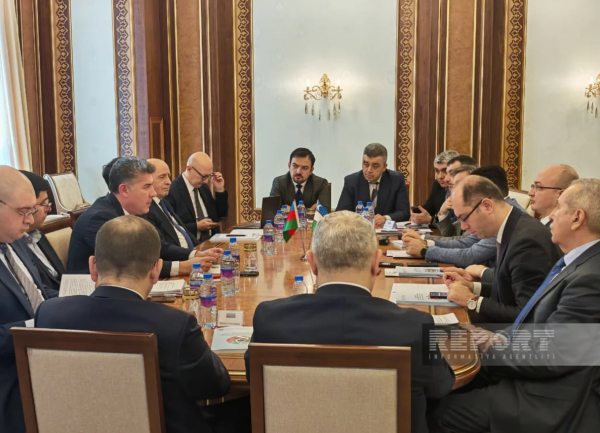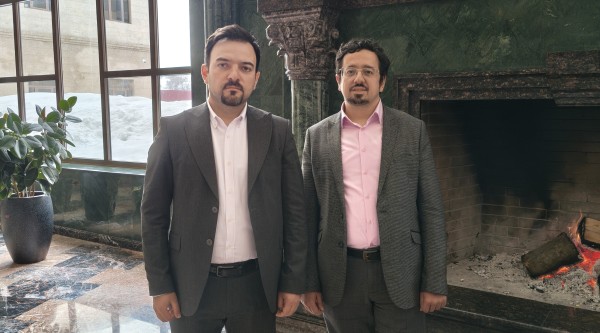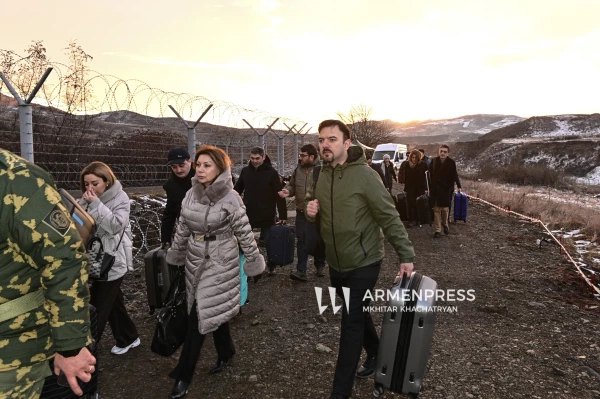Topchubashov-Chkheidze Forum inaugural session: Azerbaijan-Georgia Relations as Strategic Partnership for Stability in the South Caucasus
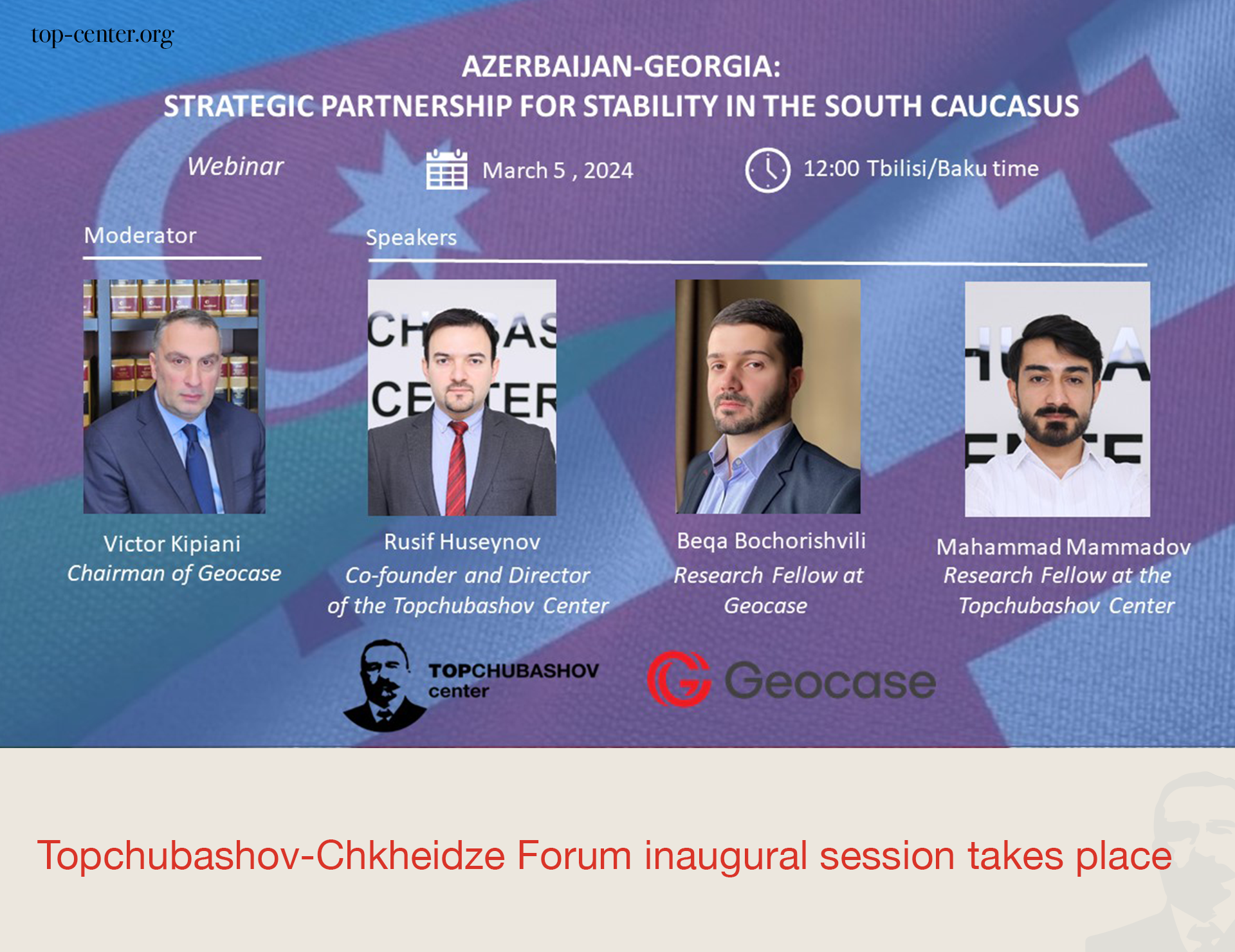
On March 5, Topchubashov Center and Geocase conducted their first joint webinar within the Topchubashov-Ckheidze forum, bringing together leading analysts from both organizations to discuss the most recent geopolitical developments in the region. The event facilitated a nuanced discussion on various pertinent topics, ranging from bilateral relations to regional integration and foreign policy priorities of Baku and Tbilisi against the background of shifting power realities after Russia’s invasion of Ukraine.
Victor Kipiani, Chair of the Geocase, opened the session with a compelling discourse on the significance of the Topchubashov-Ckheidze forum, shedding light on its pivotal role in fostering dialogue and cooperation between Azerbaijani and Georgian expert communities. His elucidation on the evolution of Azerbaijan-Georgia relations since the 1990s provided valuable insights into the historical trajectory of the two countries’ interactions, emphasizing the importance of mutual understanding and collaboration in navigating shared challenges and opportunities.
Following Mr. Kipiani's insightful presentation, Rusif Huseynov, Director of Topchubashov Center, provided his vision on the relevance of the Topchubashov-Chkheidze forum, offering a multifaceted perspective on the bilateral ties between Azerbaijan and Georgia. By analyzing the past, present, and future dynamics, Mr. Huseynov highlighted the enduring nature of the relationship and underscored the need for sustained engagement to address emerging challenges and capitalize on evolving opportunities.
Mahammad Mammadov, Research Fellow at Topchubashov Center, delved deeper into recent changes in the region’s geopolitical architecture where Azerbaijan and Georgia came to play a more pivotal role. Accordingly, the growing significance of the region’s energy (Southern Gas Corridor) and transport (Middle Corridor) routes for the regional and global strategies of different power centers afforded both South Caucasian republics many opportunities to strengthen their positioning in an increasingly uncertain world. With Armenia and Azerbaijan being so close to signing a comprehensive peace agreement, South Caucasus region can leverage its stable environment to attract international support in political and economic terms.
Lastly, Beqa Bochorishvili, Research Fellow at Geocase, shifted the focus towards Georgia's aspirations for European Union (EU) membership and its implications for the region. His presentation provided a comprehensive overview of Georgia's status as an EU candidate country, exploring the potential benefits and challenges associated with closer integration with the EU. Bochorishvili's insights offered valuable considerations for policymakers and stakeholders seeking to navigate Georgia's European aspirations within the broader regional context.
Overall, the webinar proved to be a thought-provoking and informative platform for understanding the complexities of Georgia-Azerbaijan relations and the broader regional dynamics. The sides agreed to broaden the scope of discussions in the future, engaging more stakeholders from both countries to shed light on different aspects of geopolitical developments in the region and beyond.
The discussion is available on Geocase`s Youtube channel.



